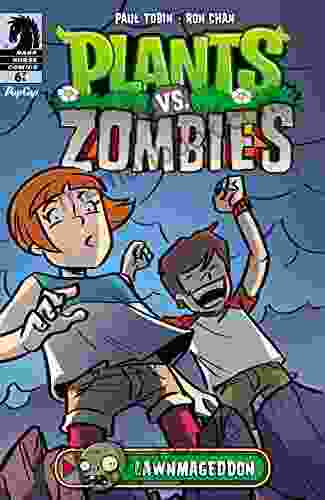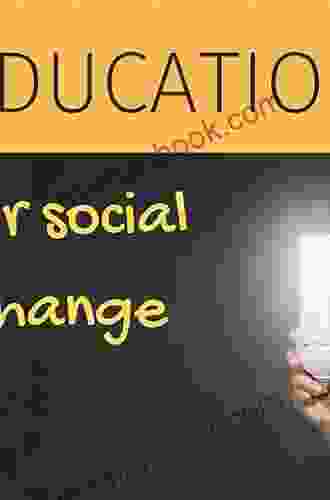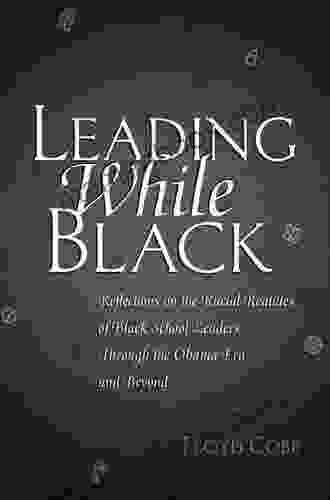Empowering Education: Critical Teaching for Social Change

Education has the transformative power to empower individuals and create positive societal change. However, traditional educational models often fall short in addressing the systemic inequalities and social injustices that persist in our communities. Critical teaching emerges as a pedagogical approach that challenges dominant narratives, encourages critical thinking, and equips students with the tools to become agents of social transformation.
What is Critical Teaching?
Critical teaching is an educational approach grounded in critical theory, a body of knowledge that examines power structures, social inequalities, and the ways in which these factors shape our understanding of the world. Critical teachers believe that education should be more than just the transmission of knowledge; it should also empower students to critically engage with the world around them, question unjust systems, and advocate for change.
4.6 out of 5
| Language | : | English |
| File size | : | 1457 KB |
| Text-to-Speech | : | Enabled |
| Screen Reader | : | Supported |
| Enhanced typesetting | : | Enabled |
| Word Wise | : | Enabled |
| Print length | : | 296 pages |
| Lending | : | Enabled |
Key Principles of Critical Teaching
- Questioning power structures: Critical teaching challenges students to critically examine the power dynamics that shape their lives and the world around them. This involves questioning who holds power, how it is used, and whose interests it serves.
- Unveiling hidden assumptions: Critical teachers help students uncover the hidden assumptions and biases that underlie traditional educational practices and societal norms. They encourage students to question the "taken-for-granted" and consider alternative perspectives.
- Empowering students as change agents: Critical teaching prioritizes empowering students with the knowledge, skills, and agency to become agents of social change. Teachers create opportunities for students to engage in critical dialogue, participate in collective action, and develop a sense of social responsibility.
- Fostering critical consciousness: Critical teaching aims to cultivate critical consciousness in students—an awareness of their own social position and the ways in which their identities and experiences shape their perspectives and opportunities.
Benefits of Critical Teaching
- Promotes critical thinking: Critical teaching encourages students to develop critical thinking skills, enabling them to analyze information objectively, identify biases, and form well-informed judgments.
- Increases social awareness: By examining power structures and social inequalities, critical teaching fosters a deep understanding of the social, cultural, and political contexts in which students live.
- Empowers students: Critical teaching empowers students to challenge injustice, advocate for their rights, and become active participants in creating a more just and equitable society.
- Prepares students for the 21st century: In an era characterized by rapid social and technological changes, critical teaching equips students with the skills and mindset necessary to navigate complex societal issues and adapt to evolving challenges.
Challenges of Critical Teaching
- Resistance to change: Critical teaching can challenge established norms and beliefs, which can encounter resistance from students, parents, and the broader community.
- Lack of resources: Critical teaching materials and professional development opportunities may not be readily available, particularly in underfunded institutions.
- Time constraints: Incorporating critical teaching into curricula can be time-consuming, given the need to cover traditional subjects and address standards.
- Emotional discomfort: Engaging with social injustices and inequalities can elicit emotional discomfort for both students and educators, requiring a supportive and sensitive learning environment.
Best Practices for Critical Teaching
- Create a safe and inclusive learning environment: Establish a classroom culture where students feel respected, valued, and empowered to express their perspectives.
- Use diverse and relevant materials: Incorporate texts, media, and perspectives that reflect the experiences and identities of diverse students.
- Encourage critical dialogue: Facilitate classroom discussions that encourage students to question, debate, and engage with each other respectfully.
- Provide opportunities for hands-on learning: Offer students opportunities to apply their critical thinking skills through projects, simulations, or community-based initiatives.
- Engage in self-reflection: Critical teachers should regularly reflect on their own biases, assumptions, and teaching practices.
Empowerment through education is crucial for building a just and equitable society. Critical teaching offers a transformative approach that challenges dominant narratives, fosters critical consciousness, and empowers students to become agents of social change. By embracing the principles and best practices of critical teaching, educators can create learning environments where students develop the skills, knowledge, and agency to critically engage with the world around them and strive for a better future.
4.6 out of 5
| Language | : | English |
| File size | : | 1457 KB |
| Text-to-Speech | : | Enabled |
| Screen Reader | : | Supported |
| Enhanced typesetting | : | Enabled |
| Word Wise | : | Enabled |
| Print length | : | 296 pages |
| Lending | : | Enabled |
Do you want to contribute by writing guest posts on this blog?
Please contact us and send us a resume of previous articles that you have written.
 Top Book
Top Book Novel
Novel Fiction
Fiction Nonfiction
Nonfiction Literature
Literature Paperback
Paperback Hardcover
Hardcover E-book
E-book Audiobook
Audiobook Bestseller
Bestseller Classic
Classic Mystery
Mystery Thriller
Thriller Romance
Romance Fantasy
Fantasy Science Fiction
Science Fiction Biography
Biography Memoir
Memoir Autobiography
Autobiography Poetry
Poetry Drama
Drama Historical Fiction
Historical Fiction Self-help
Self-help Young Adult
Young Adult Childrens Books
Childrens Books Graphic Novel
Graphic Novel Anthology
Anthology Series
Series Encyclopedia
Encyclopedia Reference
Reference Guidebook
Guidebook Textbook
Textbook Workbook
Workbook Journal
Journal Diary
Diary Manuscript
Manuscript Folio
Folio Pulp Fiction
Pulp Fiction Short Stories
Short Stories Fairy Tales
Fairy Tales Fables
Fables Mythology
Mythology Philosophy
Philosophy Religion
Religion Spirituality
Spirituality Essays
Essays Critique
Critique Commentary
Commentary Glossary
Glossary Bibliography
Bibliography Index
Index Table of Contents
Table of Contents Preface
Preface Introduction
Introduction Foreword
Foreword Afterword
Afterword Appendices
Appendices Annotations
Annotations Footnotes
Footnotes Epilogue
Epilogue Prologue
Prologue Kimberly Diede
Kimberly Diede Judith M Dunkerly
Judith M Dunkerly Keisha Brooks
Keisha Brooks K S Villoso
K S Villoso Alexa Blue
Alexa Blue Mark Twain
Mark Twain Laura Hunter Lpn
Laura Hunter Lpn Cristina Salat
Cristina Salat Bill Browder
Bill Browder Lizzie Huxley Jones
Lizzie Huxley Jones Ree Drummond
Ree Drummond Kathy A Zahler
Kathy A Zahler William F Amato
William F Amato Jane Stern
Jane Stern Thomas Perry
Thomas Perry Danielle Duckery
Danielle Duckery Kerry Murphy
Kerry Murphy Vincent Bevins
Vincent Bevins Aoife Abbey
Aoife Abbey Donna M Brinton
Donna M Brinton
Light bulbAdvertise smarter! Our strategic ad space ensures maximum exposure. Reserve your spot today!

 Clarence BrooksAm Not From Here: A Journey of Identity, Belonging, and the Search for Home
Clarence BrooksAm Not From Here: A Journey of Identity, Belonging, and the Search for Home
 Deion SimmonsPlants vs. Zombies: Lawnmageddon by Paul Tobin - The Ultimate Zombie-Fighting...
Deion SimmonsPlants vs. Zombies: Lawnmageddon by Paul Tobin - The Ultimate Zombie-Fighting... Ian MitchellFollow ·15k
Ian MitchellFollow ·15k Juan RulfoFollow ·19.8k
Juan RulfoFollow ·19.8k Francisco CoxFollow ·17.6k
Francisco CoxFollow ·17.6k Blake BellFollow ·14.2k
Blake BellFollow ·14.2k Anthony BurgessFollow ·13.3k
Anthony BurgessFollow ·13.3k Eugene ScottFollow ·11.8k
Eugene ScottFollow ·11.8k Neil GaimanFollow ·7.1k
Neil GaimanFollow ·7.1k Jacques BellFollow ·19.5k
Jacques BellFollow ·19.5k

 Ernest Powell
Ernest PowellBenefits of Corporal Punishment: A Review of the...
Corporal punishment is a form of physical...

 Bobby Howard
Bobby HowardThe Development and Significance of African American...
African American...

 Guy Powell
Guy PowellDown Girl: The Logic of Misogyny - A Comprehensive...
In her groundbreaking work,...

 Forrest Blair
Forrest BlairThe Bikini Changing Room: A Micro Mini Romance
In the heart of...
4.6 out of 5
| Language | : | English |
| File size | : | 1457 KB |
| Text-to-Speech | : | Enabled |
| Screen Reader | : | Supported |
| Enhanced typesetting | : | Enabled |
| Word Wise | : | Enabled |
| Print length | : | 296 pages |
| Lending | : | Enabled |












